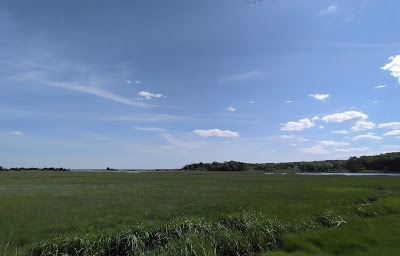“Not until you finish your homework.” “How’d the meeting go?” “You won’t believe what happened today?” “We should probably cook that broccoli tonight.”
And in a normal year, “Hey, honey, we really need to get our
ski vacation figured out.”
In my mind’s eye, these conversations all take place at the
kitchen table, the family inner sanctum. One parent is getting dinner ready and
the other is helping with homework, feeding the toddler, maybe catching up on
emails. Phones ring, plans are made, instructions given, priorities set,
families reconnect, all around the kitchen table.
These kitchen table conversations also are how families plan
ski vacations. Did we like where we went last year and should we go back? The
so-and-so’s love being in their own condo in El Grande Western Resort for the
holidays so should we talk to them and try some place new? Do the kids really
need new boots, again? We really should get the winter clothes out of storage
this weekend.
This year, in the age of COVID-19, those kitchen table
conversations are very different. This year, it’s “Hey, honey, how do we really
feel about traveling to ski this year?” Notably, it’s almost exclusively about
how people feel about traveling to
ski and ride.
Resorts all across the USA are rolling out operational
protocols designed to keep guests safe while visiting their mountains during
the pandemic. Lift capacity, lift reservations, line management, facility
cleaning, face mask and social distancing requirements, food service
modifications, group lesson programs – every phase of the resort experience is
being adjusted to limit exposure. There are some differences in those details
from place to place, but most resort plans are fundamentally similar. As I see
it, however, in this environment there is no amount of operational detail that
will help new or returning guests make the decision to travel and spend time in
ski resorts this winter. As I’ve said, in my view it’s about how people feel about traveling to ski and ride.
Thankfully, how we feel
about skiing and riding in the first place is the central reason that people
make the trek to mountain towns during the winter months in the best of times.
In the 2020-21 season, the way skiing and riding makes each of us feel
represents one of the aspects of our normal, non-pandemic lives that we long
for the most. In that way, skiing and riding, particularly as a family, simply
has become more important, more evocative of what we’re missing.
Whether to travel at all is a decision each individual family must make on their own, based on their own comfort level. Still, if it helps, I do think there that are a few simple things that holiday-makers can do to ensure that their mountain vacations safely provide the sort of valued experience for which we are all longing. Planning in a little more detail and a bit further in advance will allow skiing and riding families to have safe holidays that will be the way we want and need them to feel.
To address this, I created the short informational video above that I hope will be a helpful for families trying to figure out how they can make their ski vacations easier, safer, and less stressful this winter.
The mountains will be covered with snow this winter. The lifts will spin. The cold mountain air will invigorate us. Under our face coverings our cheeks will still be rosy and our big grins will still warm our hearts. When we’re skiing and riding, lost in the moments of exhilaration that can only come from the sports we love so much, we will momentarily be transported out of the everyday stresses of the world. During this winter of COVID-19, those moments will be all the more welcome for each of us, guests and staff alike.
I am looking forward to seeing my own guests and to meeting
new ones this winter, and to making the most of our time skiing together. And
if you need a hand while you’re at the kitchen table sorting through the
details, just give me a call.
 |
| Maroon Bells in Aspen at the end of a beautiful autumn day |









